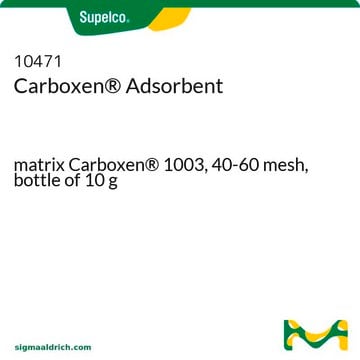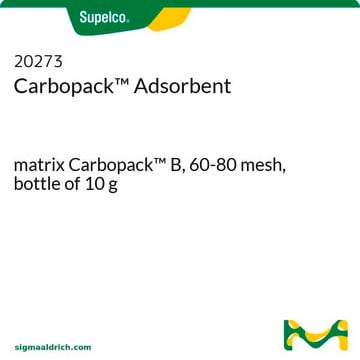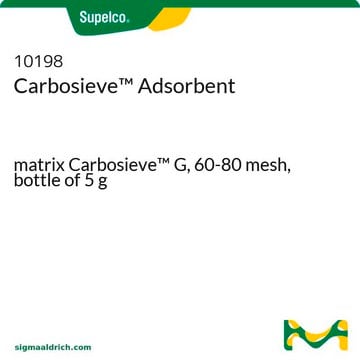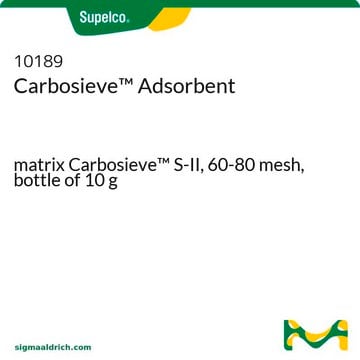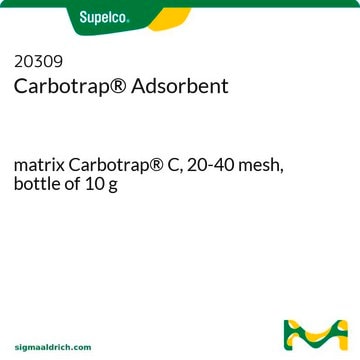10184
Carbosieve Carbon Adsorbent
matrix Carbosieve S-III, 60-80 mesh, bottle of 10 g
About This Item
Productos recomendados
product name
Carbosieve Adsorbent, matrix Carbosieve S-III, 60-80 mesh, bottle of 10 g
product line
Carbosieve
form
powder, crystals or granules
packaging
bottle of 10 g
parameter
400 °C max. temp.
technique(s)
LPLC: suitable
gas chromatography (GC): suitable
solid phase extraction (SPE): suitable
surface area
~975 m2/g
matrix
Carbosieve S-III
matrix active group
carbon
particle size
60-80 mesh
pore size
~0.04 cm3/g mesoporosity
~0.35 cm3/g microporosity
~0 cm3/g macroporosity
~4-11 pore diameter
density
~0.66 g/mL (free fall density)
separation technique
reversed phase
General description
- Spherical (better packed bed performance than granular particles)
- Hard and non-friable (pack well, will not break)
- Highly porous (high surface areas)
- Used for molecules with an analyte size relative to C2-C5 n-alkanes
- Hydrophobic (can be used in high humidity environments)
Generally, CMS adsorbents offer greater relative adsorptive strength compared to spherical graphitized polymer carbon (SGPC) and graphitized carbon black (GCB) adsorbents. Our Carbosieve products are a type of CMS adsorbent.
- Have non-tapered pores
- Very strong adsorptive strength due to only containing micropores
- Provide great performance for many small, volatile analytes that most adsorbents have trouble retaining
For more information about any of our specialty carbon adsorbents, please visit sigma-aldrich.com/carbon
Legal Information
Storage Class
13 - Non Combustible Solids
wgk_germany
WGK 3
flash_point_f
Not applicable
flash_point_c
Not applicable
ppe
Eyeshields, Gloves, type P3 (EN 143) respirator cartridges
Choose from one of the most recent versions:
¿Ya tiene este producto?
Encuentre la documentación para los productos que ha comprado recientemente en la Biblioteca de documentos.
Los clientes también vieron
Artículos
Synthetic CMS carbons offer tailored adsorbents for specific applications.
Nuestro equipo de científicos tiene experiencia en todas las áreas de investigación: Ciencias de la vida, Ciencia de los materiales, Síntesis química, Cromatografía, Analítica y muchas otras.
Póngase en contacto con el Servicio técnico



